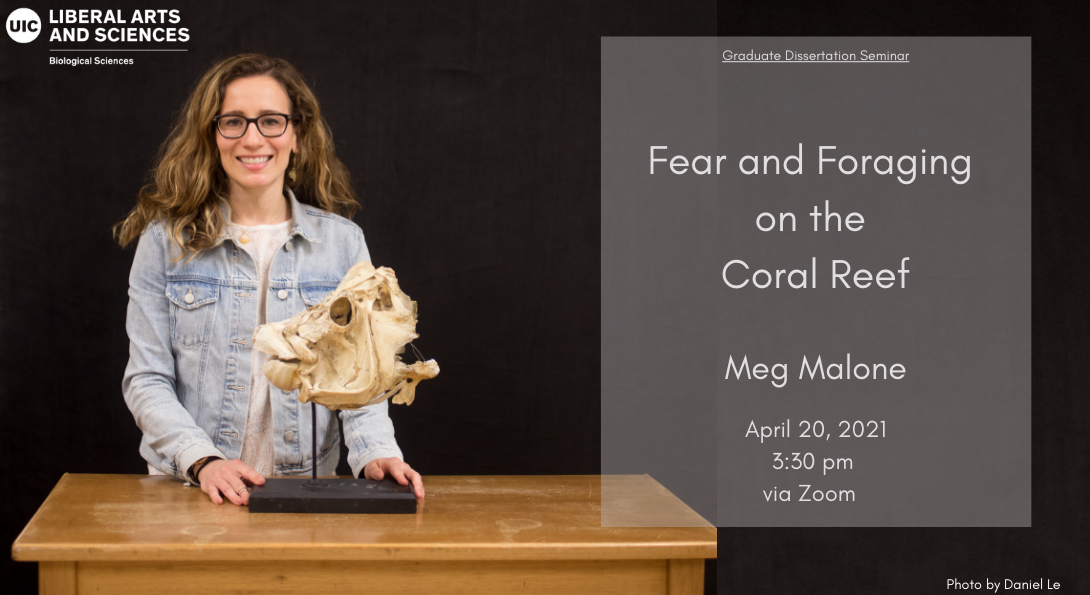PhD Dissertation- “Fear and Foraging on the Coral Reef” by Meg Malone
April 20, 2021
3:30 PM - 4:30 PM

Meg Malone will present her public dissertation "Fear and Foraging on the Coral Reef" at 3:30 pm on April 20, 2021.
Abstract:
It’s a fish-eat-fish world! As a fish swims through lush coral gardens they must contend with the threat from predators patrolling open waters and those lurking in crevices of the reef, all while trying to find food for themselves. My dissertation research was driven by a need to understand the risks and rewards of life on the reef. My research begins in remote reefs, untouched by human impacts. In these pristine ecosystems, shark populations are often greater than their prey. I used ecological theory to understand how fish should behave when they are outnumbered by their big, fierce predators. I found that vigilance behavior is not tightly linked to the number of predators in a system, but instead to predator lethality and the effectiveness of their vigilance strategy. Next, I put ecological theory into practice to understand how predation risk impacts the foraging behavior of a coral reef fish. I developed an experimental food patch, the krill burrito, and validated its use to measure giving-up densities of a common Hawaiian fish, the saddle wrasse (hīnālea lauwili, Thalassoma duperrey). I observed saddle wrasse behaviors as they foraged across Hawaiian reefs and from remote video at experimental food patches. I found these fish use the quitting harvest rate foraging strategy and that behavior at the krill burrito reflects those of wrasse foraging from rich and transient resources. Unfortunately, reefs worldwide are facing threats from multiple stressors, resulting in habitat degradation. In investigating how habitat degradation influences a fish’s perceived risk on reefs, I found that degraded reefs were riskier habitats. Fish did not perceive risk at a microhabitat scale, but instead at a reef-wide scale. Finally, I investigated wrasses as predators themselves using biological collections. I describe the unique relationship of form and function throughout ontogeny in a clade of wrasses in the genus Thalassoma that represent morphological specialists and generalists. The results from each of these dissertation chapters advances coral reef conservation, the appreciation for food-safety tradeoffs, and direct knowledge of the feeding behaviors and morphologies of an important group of reef fishes.
For zoom information, please email Emily Beaufort (ebeauf2@uic.edu)
Date posted
Apr 1, 2021
Date updated
Apr 2, 2021